With over 10,000 orders
With over 10,000 orders

Photo by Juliane Liebermann on Unsplash
Backpacking is an exhilarating experience that allows you to connect with nature, unwind from the hustle and bustle of everyday life, and create lasting memories. But what happens when you add kids to the mix? While it may seem daunting at first, backpacking with kids can be a rewarding and unforgettable adventure for the whole family. However, proper planning and preparation are key to ensuring a smooth and enjoyable trip. In this blog post, we'll explore the top 10 tips for backpacking with kids, helping you make the most of your outdoor excursion while keeping everyone safe, happy, and engaged.
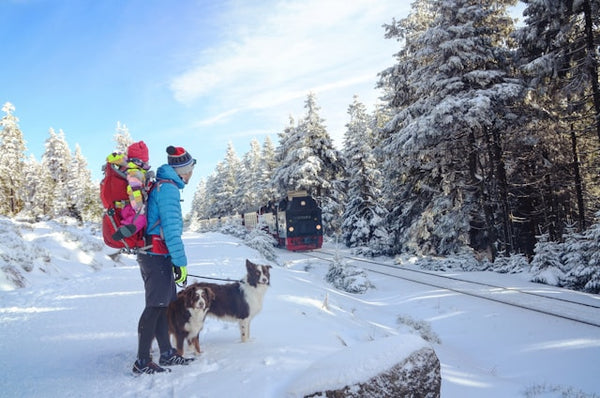
Photo by Marcel Martens on Unsplash
When venturing into backpacking with kids, it's crucial to begin with shorter, less demanding trips. Starting small allows both parents and children to acclimate to the unique challenges of backpacking while building confidence along the way. Choose trails that are suitable for your children's age and hiking experience, considering factors like elevation gain, terrain difficulty, and distance. By starting with manageable hikes, you can gauge your children's comfort levels, assess their endurance, and identify any potential challenges early on. This approach also enables the entire family to enjoy the experience without feeling overwhelmed, fostering a positive attitude towards future backpacking adventures.
Additionally, starting small provides an excellent opportunity to introduce children to the joys of outdoor exploration gradually. As they become more familiar with backpacking routines and techniques, you can gradually increase the length and difficulty of your hikes, expanding their outdoor skills and confidence over time. Remember, the goal is to create positive experiences that instill a lifelong love for nature and outdoor adventure in your children, so take your time and enjoy the journey together.
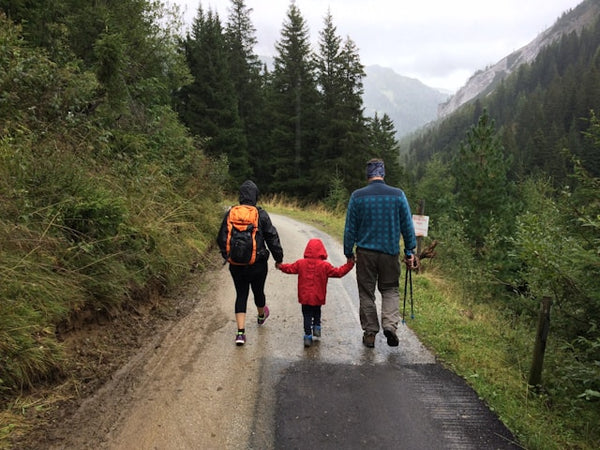
Photo by Alberto Casetta on Unsplash
Effective planning is the cornerstone of a successful backpacking trip, especially when children are involved. Take the time to thoroughly research your chosen destination, including trail conditions, weather forecasts, wildlife encounters, and any necessary permits or regulations. Create a detailed itinerary outlining your route, camping locations, and daily mileage, but remain flexible to accommodate unexpected changes or challenges along the way. Involving your children in the planning process can also foster a sense of excitement and anticipation, empowering them to participate actively in the adventure.
Not to mention, comprehensive planning ensures that you are adequately prepared for emergencies and unforeseen circumstances. Pack a well-stocked first-aid kit, familiarize yourself with basic wilderness first-aid procedures, and communicate emergency protocols with your children before setting out. Consider factors such as meal planning, water purification, and gear maintenance to ensure a smooth and enjoyable backpacking experience for the entire family. By prioritizing thorough planning, you can minimize stress and maximize the enjoyment of your outdoor adventure, creating lasting memories that your children will cherish for years to come.
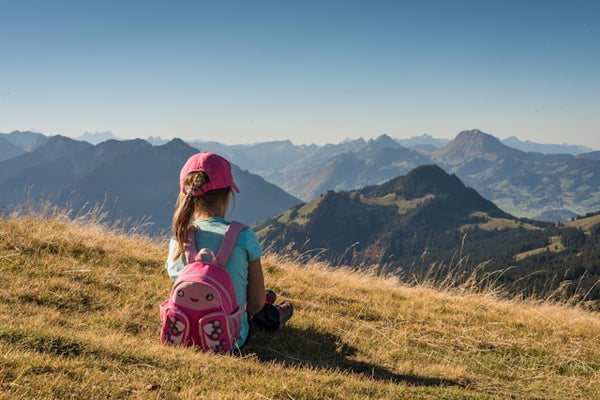
Photo by S&B Vonlanthen on Unsplash
When it comes to packing for a backpacking trip with kids, prioritizing lightweight and versatile gear is essential. Consider your children's needs and abilities when selecting equipment and clothing, opting for items that are durable, comfortable, and suitable for outdoor use. Essentials include proper clothing layers to accommodate changing weather conditions, sturdy footwear with good traction, and sleeping bags and pads designed for backpacking. Additionally, lightweight tents and compact cooking equipment can help minimize the overall weight of your pack while still providing essential shelter and sustenance. Don't forget to pack plenty of snacks and water to keep everyone energized and hydrated throughout the journey. Involving your children in the packing process can also teach them valuable organizational skills and ensure that they feel prepared and responsible for their own belongings.
Moreover, packing entertainment options such as books, games, or a nature journal can help keep children engaged and entertained during downtime. Encourage them to pack a few favorite items or activities to bring along, allowing them to personalize their backpacking experience and feel more invested in the adventure. Remember to distribute the weight of shared gear and supplies evenly among family members to prevent overburdening any one individual. By packing wisely and efficiently, you can streamline your backpacking experience and focus on enjoying quality time together in the great outdoors.
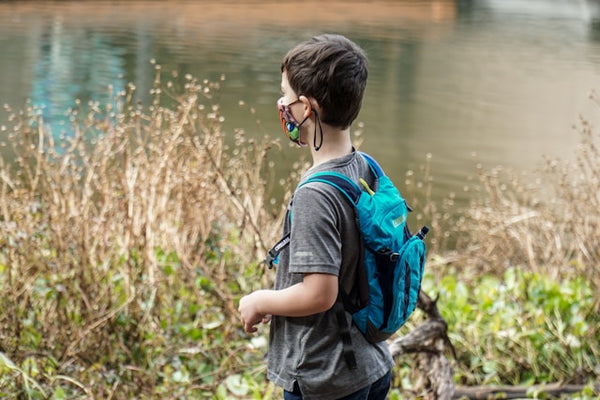
Photo by Thomas Park on Unsplash
Ensuring the safety of your family is paramount when backpacking with kids. Before setting out, teach your children basic outdoor skills such as identifying potential hazards, staying hydrated, and recognizing signs of wildlife. Emphasize the importance of staying together as a group and following established safety protocols, such as staying on designated trails and avoiding risky behavior near cliffs or bodies of water. Pack a comprehensive first-aid kit and familiarize yourself with how to use its contents to address common injuries and ailments that may occur on the trail. Additionally, review emergency procedures with your children, including what to do in case of separation or unexpected encounters with wildlife.
You should also prioritize sun protection and insect repellent to minimize the risk of sunburns and bug bites while hiking. Ensure that everyone wears appropriate clothing and gear to shield against the elements, including hats, sunglasses, and sunscreen with a high SPF rating. Stay informed about potential weather hazards and be prepared to adjust your plans accordingly to ensure the safety and well-being of your family. By prioritizing safety and taking proactive measures to mitigate risks, you can enjoy peace of mind and focus on making lasting memories together in the great outdoors.
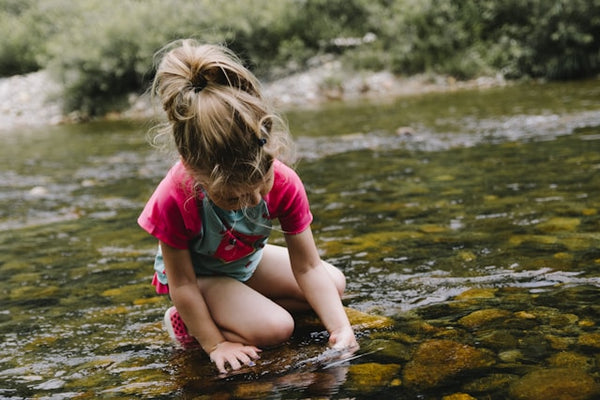
Photo by Kelly Sikkema on Unsplash
Encouraging your children to immerse themselves in the natural world around them can enrich their backpacking experience and foster a deeper appreciation for the outdoors. Take breaks along the trail to explore interesting rock formations, observe wildlife, and listen to the sounds of the forest. Engage their curiosity by teaching them about the plants, animals, and ecosystems they encounter, turning the hike into an educational adventure. Encourage them to use their senses to connect with nature fully, whether it's feeling the texture of tree bark, listening to bird calls, or smelling wildflowers along the trail. By embracing nature and encouraging curiosity, you can create memorable moments that inspire a lifelong love for the environment in your children.
You can use your time in nature as an opportunity to disconnect from digital distractions and immerse yourself fully in the present moment. Encourage your children to put away electronic devices and instead focus on the sights, sounds, and sensations of the natural world. Encourage creative expression through activities like nature journaling, sketching, or photography, allowing them to capture their impressions and observations along the way. By fostering a deeper connection with nature, you can instill a sense of wonder and awe in your children, fostering a lifelong appreciation for the beauty and complexity of the world around them.
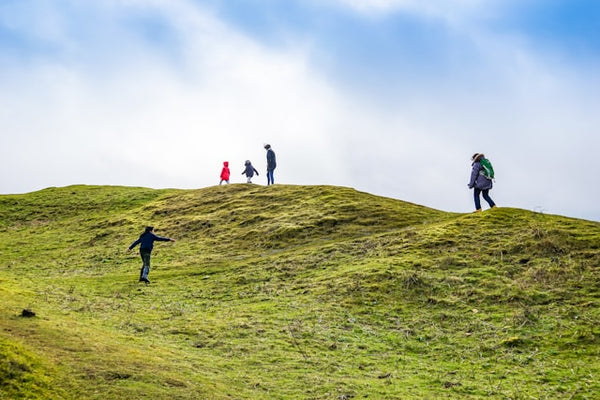
Recognizing and accommodating the unique pacing and endurance levels of children is essential for a successful backpacking trip. Take frequent breaks to rest, refuel, and enjoy the scenery, allowing everyone to recharge their energy and maintain a positive attitude throughout the journey. Encourage a slow and steady pace that allows for exploration and enjoyment without feeling rushed or overexerted. Be mindful of signs of fatigue or discomfort in your children and adjust your pace accordingly to prevent exhaustion and minimize the risk of injuries. Remember that the journey itself is just as important as reaching your destination, so take the time to savor each moment and appreciate the beauty of your surroundings.
Make sure to use breaks as an opportunity to engage your children in interactive activities and games that promote bonding and camaraderie. Encourage them to explore their surroundings, play nature-themed games, or participate in group challenges to keep spirits high and energy levels up. By pacing yourself and incorporating fun and engaging activities along the way, you can create an enjoyable and memorable backpacking experience for the entire family. Embrace the journey, stay present in the moment, and savor the shared moments of adventure and discovery with your children by your side.
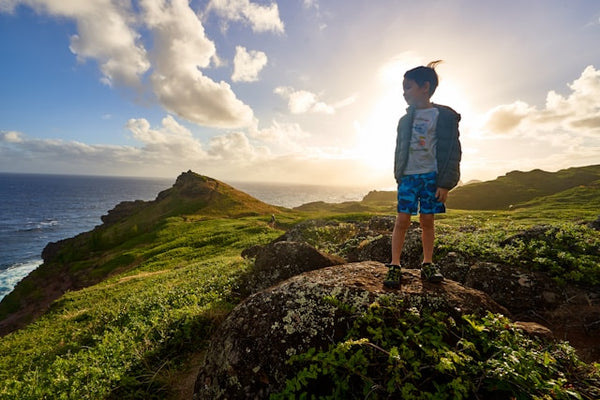
Photo by Drew Gilliam on Unsplash
Empowering your children to take on age-appropriate responsibilities during the backpacking trip not only helps lighten the load for parents but also fosters a sense of independence and self-reliance in young adventurers. Assign tasks such as setting up camp, gathering firewood, or assisting with meal preparation, allowing children to contribute actively to the camping experience. Provide clear instructions and guidance as needed, but also encourage them to problem-solve and take initiative in completing their assigned tasks. By involving children in the responsibilities of backpacking, you instill valuable life skills and cultivate a sense of ownership and pride in their contributions to the family adventure.
Allowing children to take on roles and responsibilities during the trip can even help build confidence and resilience in the face of challenges. Encourage them to navigate the trail, read maps, or assist with route planning, providing opportunities for them to practice decision-making and problem-solving skills in a real-world setting. Celebrate their achievements and offer praise and encouragement for their efforts, reinforcing a positive sense of self-esteem and accomplishment. By fostering independence and self-reliance, you empower your children to become capable and confident outdoor enthusiasts, ready to tackle new adventures with enthusiasm and determination.
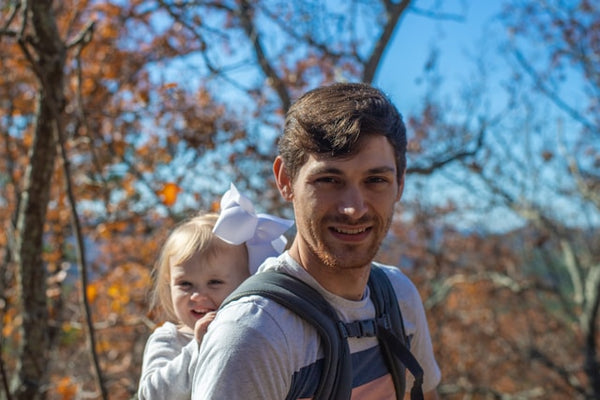
Photo by Jeremiah Lawrence on Unsplash
Maintaining a positive attitude and outlook is essential for keeping spirits high and morale strong during the ups and downs of a backpacking trip with kids. Embrace a mindset of flexibility and adaptability, recognizing that unexpected challenges or setbacks are a natural part of outdoor adventure. Approach each obstacle or difficulty as an opportunity for growth and learning, reframing negative experiences as valuable lessons and opportunities for resilience-building. Model positivity and optimism for your children, demonstrating how to approach challenges with a can-do attitude and a willingness to persevere.
Moreover, celebrate the small victories and milestones achieved along the way, whether it's reaching a scenic overlook, successfully pitching a tent, or spotting wildlife on the trail. Use humor and creativity to lighten the mood during challenging moments, turning setbacks into opportunities for laughter and bonding as a family. Encourage open communication and expression of feelings, providing a supportive and nurturing environment where children feel comfortable sharing their thoughts and emotions. By staying positive and maintaining a sense of humor, you can transform obstacles into opportunities and create cherished memories of resilience, perseverance, and shared adventure with your children.
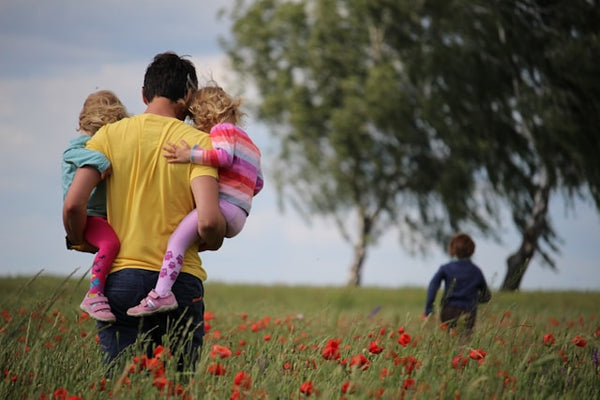
Photo by Juliane Liebermann on Unsplash
Teaching children the principles of Leave No Trace ensures that your backpacking trip minimizes its environmental impact while also instilling values of conservation and stewardship. Emphasize the importance of packing out all trash and waste, including food scraps and biodegradable items, to preserve the pristine beauty of the wilderness for future generations. Encourage children to respect wildlife and vegetation by observing from a distance and avoiding activities that could disturb or harm natural habitats. Teach them to stay on designated trails to prevent soil erosion and habitat destruction, preserving the integrity of fragile ecosystems.
It's best to lead by example by practicing Leave No Trace principles yourself and demonstrating environmentally responsible behavior to your children. Take the opportunity to educate them about the importance of conservation and environmental stewardship, discussing topics such as habitat protection, biodiversity, and the interconnectedness of all living things. Engage children in hands-on activities such as litter cleanups or habitat restoration projects to instill a sense of ownership and responsibility for protecting the natural world. By incorporating Leave No Trace principles into your backpacking trip, you can help cultivate environmentally conscious habits in your children and contribute to the preservation of our planet's precious natural resources.
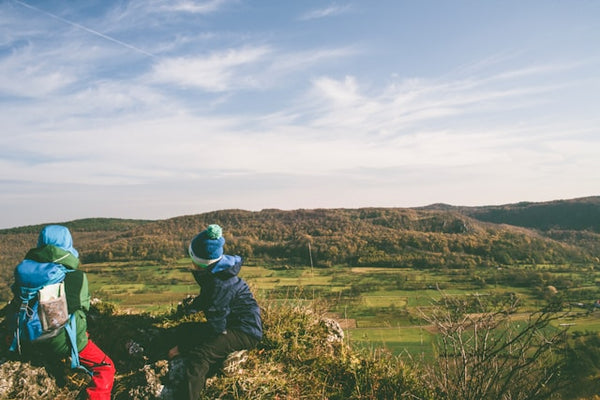
Photo by Markus Spiske on Unsplash
After your backpacking adventure, take time as a family to reflect on the experiences shared and lessons learned along the trail. Encourage open communication and discussion about the highlights, challenges, and memorable moments of the trip, allowing everyone to share their thoughts and feelings in a supportive and nurturing environment. Use this opportunity to celebrate individual achievements and milestones, acknowledging each family member's contributions to the overall success of the journey. Reflect on the personal growth and resilience gained from overcoming obstacles together as a team, fostering a sense of camaraderie and unity among family members.
Use the backpacking trip as a catalyst for deeper connections and bonding within the family unit. Share stories and laughter around the campfire, engage in meaningful conversations under the starlit sky, and create lasting memories that will be cherished for years to come. Take the time to disconnect from distractions and technology, allowing for genuine and uninterrupted quality time spent together in nature. Use the shared experiences of the backpacking trip as a foundation for future adventures and family bonding activities, fostering a sense of closeness and connection that will endure long after the journey has ended. By reflecting on your experiences and connecting as a family, you can strengthen relationships, create cherished memories, and inspire a lifelong love for outdoor adventure in your children.
Backpacking with kids may require extra planning and patience, but the rewards are well worth the effort. By following these top 10 tips, you can embark on a memorable outdoor adventure that not only nurtures a love for nature but also strengthens family bonds and creates cherished memories for years to come. So pack your bags, lace up your hiking boots, and get ready to explore the great outdoors with your little adventurers by your side. Happy trails!
Hungry for more?
{"one"=>"Select 2 or 3 items to compare", "other"=>"{{ count }} of 3 items selected"}
Leave a comment